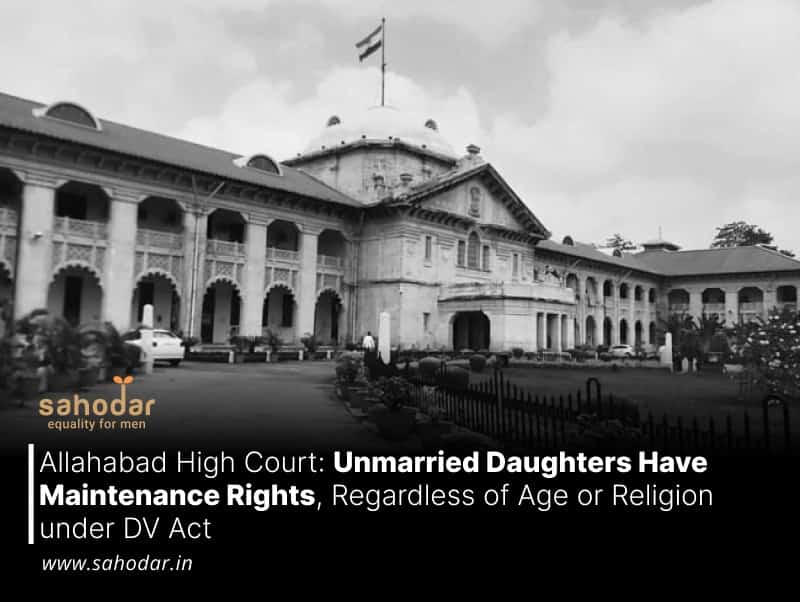The Court said that while the substantive right to receive maintenance may emanate from other laws, a quicker and shorter procedure to obtain the same has been provided under the DV Act.
The recent judgment by the Allahabad High Court affirms that an unmarried daughter, regardless of her religion or age, is entitled to seek maintenance under the Protection of Women from Domestic Violence Act, 2005 (DV Act). The case of Naimullah Sheikh and another v. State Of UP & Ors highlighted this ruling.
Justice Jyotsna Sharma thoroughly analyzed the provisions of the DV Act and concluded that any woman who experiences violence in a domestic relationship is eligible for relief under the legislation, irrespective of her being a minor or an adult. Justice Sharma’s decision was supported by references to Supreme Court judgments.
“…there remains no doubt that unmarried daughter, whether Hindu or Muslim has a right to obtain maintenance, irrespective of her age.”
The court considered a petition challenging a judicial magistrate’s directive instructing a Muslim man to pay interim maintenance of ₹3,000 each to his three daughters.
According to the daughters, who appeared before the magistrate, their mother passed away in 2015, and their father remarried while their mother was still alive. They alleged mistreatment and physical abuse by both their father and stepmother.
The father contested the lower court’s decision, contending that the magistrate overlooked his old age, infirmity, and lack of income. He also argued that since his daughters are adults, they are not eligible for maintenance.
Justice Sharma examined the preamble of the DV Act, emphasizing that the 2005 law was enacted to provide “more effective protection to women.” The inclusion of the word “more” before “effective protection of rights of woman” was deemed a significant addition by the single judge.
The court also reasoned that, although the right to receive maintenance may arise from other laws, the DV Act offers a faster and more streamlined procedure to obtain such relief.
“The rights which the parties may have under other laws whether civil or criminal, have been given a cutting edge by the Act. In my view, this explains the use of words “more effective protection to women” in the foreword which described the reasons behind this enactment.”
The court observed that the entitlements of an aggrieved individual under the DV Act stem from experiencing violence, which could manifest as physical, mental, sexual, verbal, or emotional abuse. The court emphasized that such violence might also extend to economic exploitation.
Upon reviewing Section 20(1) of the Act, which addresses the costs or damages incurred by an aggrieved individual as a result of domestic violence, the court stated,
“From reading this part, this impression gains ground that irrespective of other factors like dependency, age or marital status etc (which may be relevant in or under any other law) the aggrieved person has an independent right to obtain monetary relief for expenses incurred and losses suffered because of domestic violence.”
In reaching the conclusion that an unmarried daughter possesses the entitlement to claim maintenance under the DV Act, the Bench specified that in matters concerning maintenance, courts must also consider the relevance of other applicable laws.
“However, where issue does not pertain to mere maintenance, the independent rights are available to an aggrieved under section 20 of the DV Act itself,” it added.
Finding no good ground to interfere with the magistrate’s order, the Court dismissed the petition.

